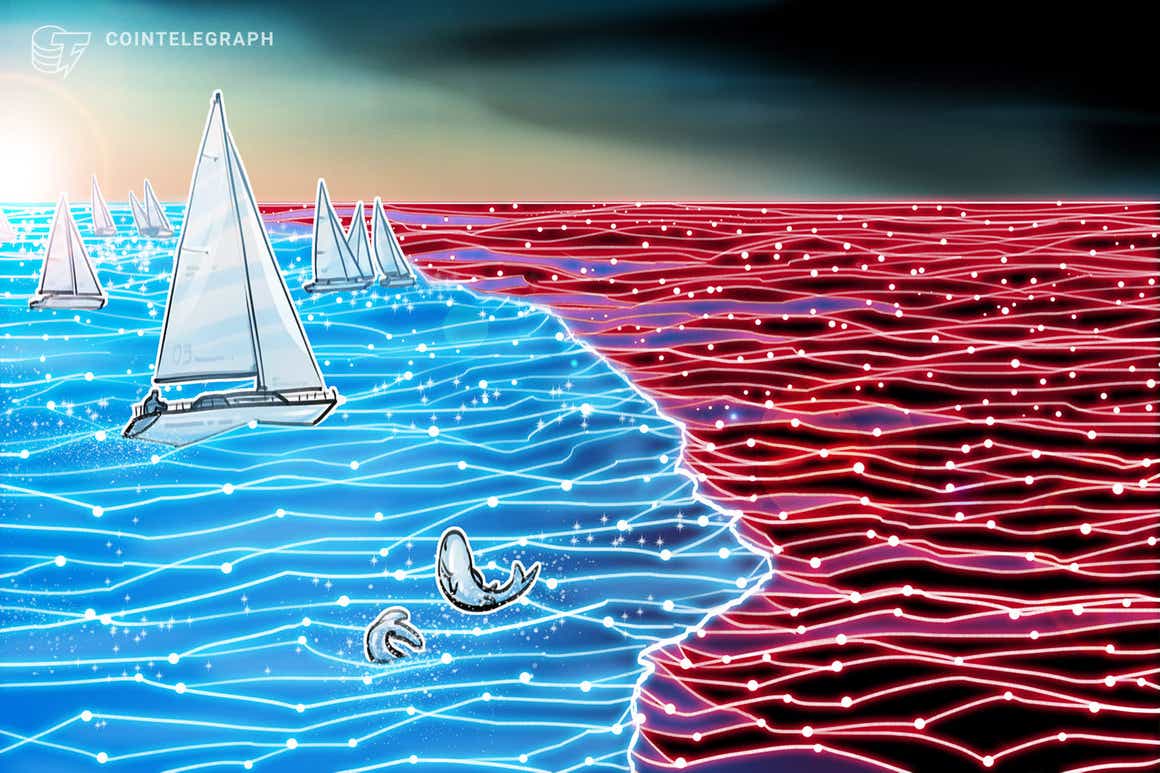Whose side are you on? The Ukraine-Russia war is forcing people to answer that question. For some in the crypto community, this can be uncomfortable b
Whose side are you on? The Ukraine-Russia war is forcing people to answer that question. For some in the crypto community, this can be uncomfortable because if an individual or project stands with the West against Russia, it also means it abides by sanctions. This can be tough to square with crypto/blockchain’s supposed decentralized system and its claims on being borderless, censorship-free and distributed.
Take OpenSea, the NFT marketplace, which really isn’t a decentralized project but is often described as such. “OpenSea is a decentralized peer-to-peer marketplace for buying, selling and trading rare digital goods,” according to CoinMarketCap, for instance.
But, when OpenSea recently banned Iranian users from using its NFT trading platform — explaining it was only abiding by United States sanctions law — it provoked outrage among some NFT collectors. Documentary photographer Khashayar Sharifaee tweeted:
I saw #OpenSea and #Metamask blacklisting and shutting down users on the sanction list.(countries like Iran, Cuba, Syria and so on)
This was not the decentralized system!
This was not the deal!— Khashayar sharifaee (@sharifaee) March 3, 2022
This raises questions: Is the public and governmental officials now more keenly focused on crypto-regulation, especially with the outbreak out of the Russia-Ukraine war? OpenSea incensed many in its community by banning Iranian users, but did it have a choice?
Further, while large United States-based crypto-related companies like FTX, Coinbase, OpenSea and Consensys have to abide by U.S. sanctions and regulations, what about decentralized projects without any easily identifiable headquarters, leaders or national affiliation. Will or can they comply, too, or do they get a pass?
Finally, there’s a longer-term question: Will we ever have a truly decentralized marketplace? Won’t the cryptoverse inevitably have to compromise at least somewhat with centralized institutions like sovereign governments?
More regulatory attention
“Governmental authorities have definitely taken more interest in crypto-regulation as of late,” Cory Klippsten, CEO of Swan.com, told Cointelegraph when asked about recent events, adding that serious regulatory discussions have been ongoing for many years now. “Still, the Russia-Ukraine War has pushed crypto into the spotlight, which is why we are seeing more public interest concerning these crypto-regulatory developments.”
“Everyone is starting to rethink the importance of compliance and crypto for a number of reasons,” agreed Carlos Domingo, founder and CEO of Securitize, told Cointelegraph. “We are seeing live, right now, the importance and effectiveness of sanctions” in connection with the war.
U.S. regulators are putting pressure on the biggest players in the crypto space to comply. “And now, also, somewhat decentralized crypto platforms,” said Markus Hammer, an attorney and principal at Hammer Execution consulting firm, told Cointelegraph. Maybe that’s why OpenSea came down hard on Iranian users last week, even though Iranian sanctions were reimposed in 2020.
“As regulations appear to be imminent, companies like OpenSea are trying to protect themselves by ensuring they’re compliant with any potential regulations coming down the pipeline,” said Klippsten, adding, “that’s why you’re seeing them ban Iranians.” Cointelegraph sought comment from OpenSea for this story but received no response.
Will one start to see more projects such as Binance or FTX that were vague about their geographic homes become clearer about where they are based? Will others declare, like OpenSea last week: “We’re a U.S.-based company” that must “comply with U.S. sanctions law?”
We’re truly sorry to the artists & creators that are impacted, but OpenSea is subject to strict policies around sanctions law. We’re a US-based company and comply with US sanctions law, meaning we’re required to block people in places on the US sanctions lists from using OpenSea
— OpenSea (@opensea) March 3, 2022
“I’m not sure that OpenSea tried to hide their location,” answered Domingo. “Most people knew that the CEO and other employees were based in New York.” He also added, for the record, “I don’t see OpenSea as a decentralized project at all. I think it is pretty centralized, similar to Coinbase, Binance and FTX.”
Rather, what we are seeing now is that increasingly “regulators care about fraud and illegal activities committed against their citizens and businesses, and they are increasingly willing to pursue enforcement action anywhere in the world, such as in the case of BitMEX,” said Domingo.
Still, many in the crypto community see betrayal in OpenSea’s actions — blockchain-based projects are supposed to be censorship-free, after all. Was it fair that an Iranian artist, who has nothing to do with his government’s action, is now denied a platform to sell his digital art?
“OpenSea has to comply with U.S….
cointelegraph.com
